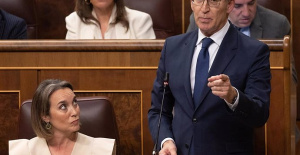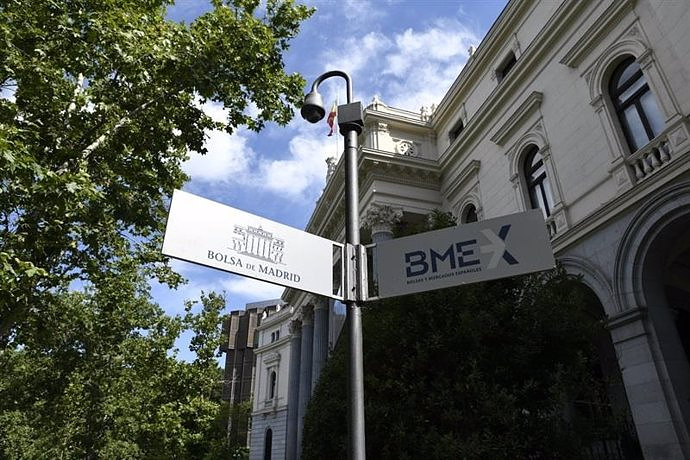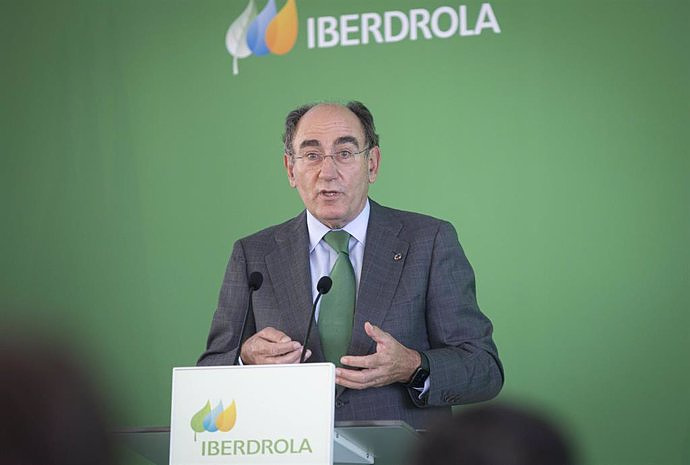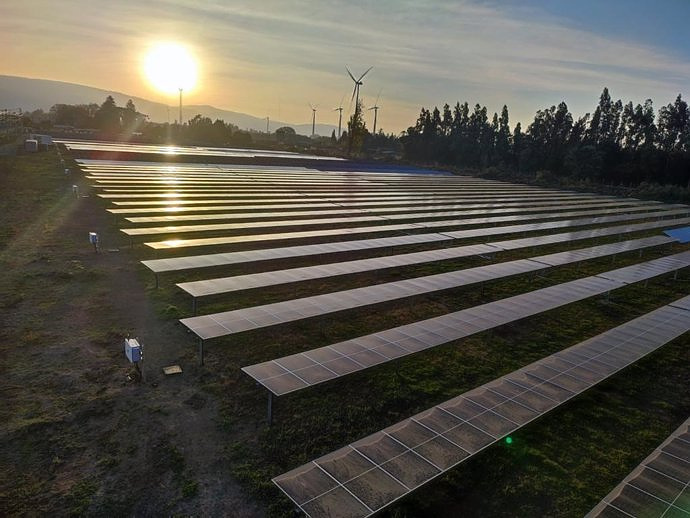The average interest rate falls slightly to 18.22%
MADRID, 4 Sep. (EUROPA PRESS) -
The outstanding balance of credits with deferred payment and 'revolving' cards stood at 11,374 million euros in July, which represents an increase of 17.6% compared to a year earlier, as well as a slight decrease (-0, 4%) compared to the month of June.
This is reflected in the latest data from the Bank of Spain, consulted by Europa Press, which show that the outstanding balance of this type of operation has grown by 13% since the beginning of 2022, although it is 0.18% below February 2020, the last month before the outbreak of the coronavirus pandemic.
The increase in 'revolving' credit operations throughout the year coincides with record figures in family savings. At the end of July, the deposits of Spanish households amounted to 997,400 million euros, a figure that exceeds the savings of a year before by 5.78%.
Likewise, it occurs in a scenario of triggered inflation. Precisely, the experts at Reclama Por Mí attribute the increase in requests for revolving cards to the rise in inflation, which raises the cost of living for Spanish households.
Specifically, the Consumer Price Index (CPI) has shot up its interannual rate in July to 10.8%, its highest level since September 1984 and six tenths above that registered in June.
"This circumstance has drastically reduced the purchasing power of families who, in this situation, are forced to resort to alternative financing systems that hide high interest rates, such as revolving cards," they point out from the platform specialized in defense of the consumer.
The 'revolving' cards provide the customer with a credit limit that can be repaid in installments through periodic installments that can be established as a percentage of the existing debt or as a fixed installment.
The debt derived from the credit is renewed monthly, reducing with installment payments and increasing with the use of the card and with the interest, commissions and expenses generated, which means that, if the monthly installment paid is very low compared to to the amount of the debt, the amortization of the principal is carried out over a very long term, raising the interest to be paid.
The Supreme Court determined on March 4, 2020 that revolving card contracts with interest rates higher than the normal interest of money should be considered usurious, which has caused a barrage of consumer lawsuits for this concept.
Data from the Bank of Spain show that the average rate for 'revolving' credit cards stood at 18.22% in July, slightly below the 18.55% registered a year ago, but well above the average rate weighted 6.82% applicable to the rest of the consumer loans. Before the Supreme Court ruling, the average rate for new operations with revolving cards was around 20%.

 Exploring Cardano: Inner Workings and Advantages of this Cryptocurrency
Exploring Cardano: Inner Workings and Advantages of this Cryptocurrency Seville.- Economy.- Innova.- STSA inaugurates its new painting and sealing hangar in San Pablo, for 18 million
Seville.- Economy.- Innova.- STSA inaugurates its new painting and sealing hangar in San Pablo, for 18 million Innova.- More than 300 volunteers join the Andalucía Compromiso Digital network in one month to facilitate access to ICT
Innova.- More than 300 volunteers join the Andalucía Compromiso Digital network in one month to facilitate access to ICT Innova.-AMP.- Ayesa acquires 51% of Sadiel, which will create new technological engineering products and expand markets
Innova.-AMP.- Ayesa acquires 51% of Sadiel, which will create new technological engineering products and expand markets The US Senate approves a law that will allow TikTok to be banned if it is not transferred to another company
The US Senate approves a law that will allow TikTok to be banned if it is not transferred to another company Guilarte believes that Reynders was "naive" when negotiating the CGPJ with PSOE and PP and regrets that there has been no "progress"
Guilarte believes that Reynders was "naive" when negotiating the CGPJ with PSOE and PP and regrets that there has been no "progress" The PP asks the Government to "imitate the transparency" of France to clarify the spying on Sánchez with Pegasus
The PP asks the Government to "imitate the transparency" of France to clarify the spying on Sánchez with Pegasus 90% of the largest charter schools in Spain charge "illegal" fees, according to an Esade report
90% of the largest charter schools in Spain charge "illegal" fees, according to an Esade report How Blockchain in being used to shape the future
How Blockchain in being used to shape the future Not just BTC and ETH: Here Are Some More Interesting Coins Worth Focusing on
Not just BTC and ETH: Here Are Some More Interesting Coins Worth Focusing on Looking for video games that value the neighborhoods of Valencia
Looking for video games that value the neighborhoods of Valencia UPV researchers improve the efficiency of air conditioning systems using a geothermal heat pump
UPV researchers improve the efficiency of air conditioning systems using a geothermal heat pump València is committed to citiverse and smart tourism to be "the reference technological hub of the Mediterranean"
València is committed to citiverse and smart tourism to be "the reference technological hub of the Mediterranean" Valencia displays its "innovative and technological potential" at the Emerge Americas event in Miami
Valencia displays its "innovative and technological potential" at the Emerge Americas event in Miami A million people demonstrate in France against Macron's pension reform
A million people demonstrate in France against Macron's pension reform Russia launches several missiles against "critical infrastructure" in the city of Zaporizhia
Russia launches several missiles against "critical infrastructure" in the city of Zaporizhia A "procession" remembers the dead of the Calabria shipwreck as bodies continue to wash up on the shore
A "procession" remembers the dead of the Calabria shipwreck as bodies continue to wash up on the shore Prison sentences handed down for three prominent Hong Kong pro-democracy activists
Prison sentences handed down for three prominent Hong Kong pro-democracy activists ETH continues to leave trading platforms, Ethereum balance on exchanges lowest in 3 years
ETH continues to leave trading platforms, Ethereum balance on exchanges lowest in 3 years Investors invest $450 million in Consensys, Ethereum incubator now valued at $7 billion
Investors invest $450 million in Consensys, Ethereum incubator now valued at $7 billion Alchemy Integrates Ethereum L2 Product Starknet to Enhance Web3 Scalability at a Price 100x Lower Than L1 Fees
Alchemy Integrates Ethereum L2 Product Starknet to Enhance Web3 Scalability at a Price 100x Lower Than L1 Fees Mining Report: Bitcoin's Electricity Consumption Declines by 25% in Q1 2022
Mining Report: Bitcoin's Electricity Consumption Declines by 25% in Q1 2022 Oil-to-Bitcoin Mining Firm Crusoe Energy Systems Raised $505 Million
Oil-to-Bitcoin Mining Firm Crusoe Energy Systems Raised $505 Million Microbt reveals the latest Bitcoin mining rigs -- Machines produce up to 126 TH/s with custom 5nm chip design
Microbt reveals the latest Bitcoin mining rigs -- Machines produce up to 126 TH/s with custom 5nm chip design Bitcoin's Mining Difficulty Hits a Lifetime High, With More Than 90% of BTC Supply Issued
Bitcoin's Mining Difficulty Hits a Lifetime High, With More Than 90% of BTC Supply Issued The Biggest Movers are Near, EOS, and RUNE during Friday's Selloff
The Biggest Movers are Near, EOS, and RUNE during Friday's Selloff Global Markets Spooked by a Hawkish Fed and Covid, Stocks and Crypto Gain After Musk Buys Twitter
Global Markets Spooked by a Hawkish Fed and Covid, Stocks and Crypto Gain After Musk Buys Twitter Bitso to offset carbon emissions from the Trading Platform's ERC20, ETH, and BTC Transactions
Bitso to offset carbon emissions from the Trading Platform's ERC20, ETH, and BTC Transactions Draftkings Announces 2022 College Hoops NFT Selection for March Madness
Draftkings Announces 2022 College Hoops NFT Selection for March Madness



























